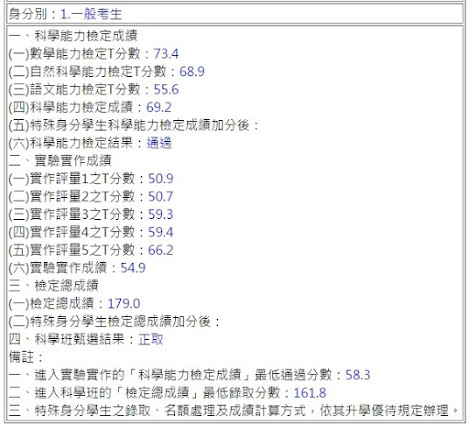Zerojudge d713:中位数
Zerojudge d713:中位数
題目大意:求數列中位數。
解法:$\text{heap}$。
$\text{Code:}$可用 $\text{priority_queue}$,只是我沒用。
#pragma GCC optimize("O3")
#include <iostream>
#define gu() getchar_unlocked()
#define pu(X) putchar_unlocked(X)
#define LL long long
#define SWAP(X,Y) X^=Y,Y^=X,X^=Y
using namespace std;
bool pause = 0;
int in() {
int a = 0;
char c = gu();
bool sml = 0;
while (c == ' ' || c == '\n') {
c = gu();
}
if (c == EOF) {
pause = 1;
return 0;
}
if (c == '-') {
sml = 1;
c = gu();
}
while (c >= '0' && c <= '9') {
a = a * 10 + c - '0', c = gu();
}
return sml ? -a : a;
}
void out (int x) {
if (x < 0) {
x = -x, pu ('-');
}
string str;
do {
str = (char) (x % 10 + '0') + str;
x /= 10;
} while (x);
for (int i = 0; i < str.length(); i++) {
pu (str[i]);
}
pu ('\n');
}
int max_heap[100005], min_heap[100005];
int num, pos_max = 0, pos_min = 0;
void up_heap_max (int now) {
if (now == 0) {
return;
}
int to = (now - 1) / 2;
if (max_heap[to] < max_heap[now]) {
SWAP (max_heap[to], max_heap[now]);
up_heap_max (to);
}
}
void up_heap_min (int now) {
if (now == 0) {
return;
}
int to = (now - 1) / 2;
if (min_heap[to] > min_heap[now]) {
SWAP (min_heap[to], min_heap[now]);
up_heap_min (to);
}
}
void max_heapify (int now) {
int left = now * 2 + 1, right = now * 2 + 2;
int big = max_heap[now];
if (left < pos_max && max_heap[left] > big) {
big = max_heap[left];
}
if (right < pos_max && max_heap[right] > big) {
big = max_heap[right];
}
if (big == max_heap[now]) {
return;
}
if (big == max_heap[left]) {
SWAP (max_heap[now], max_heap[left]);
max_heapify (left);
} else {
SWAP (max_heap[now], max_heap[right]);
max_heapify (right);
}
}
void min_heapify (int now) {
int left = now * 2 + 1, right = now * 2 + 2;
int sml = min_heap[now];
if (left < pos_min && min_heap[left] < sml) {
sml = min_heap[left];
}
if (right < pos_min && min_heap[right] < sml) {
sml = min_heap[right];
}
if (sml == min_heap[now]) {
return;
}
if (sml == min_heap[left]) {
SWAP (min_heap[now], min_heap[left]);
min_heapify (left);
} else {
SWAP (min_heap[now], min_heap[right]);
min_heapify (right);
}
}
int len (LL n) {
int re = 0;
if (n < 0)
re++, n = -n;
do {
re++;
n /= 10;
} while (n);
return re;
}
void solve() {
if (pos_max == 0) {
out (num);
max_heap[pos_max++] = num;
return;
}
if (pos_min == 0) {
out ( ( (LL) num + max_heap[0]) / 2);
min_heap[pos_min++] = num;
if (max_heap[0] > min_heap[0]) {
SWAP (max_heap[0], min_heap[0]);
}
return;
}
if (pos_max == pos_min) {
if (num <= max_heap[0]) {
max_heap[pos_max] = num;
up_heap_max (pos_max);
} else if (max_heap[0] < num && num <= min_heap[0]) {
max_heap[pos_max] = max_heap[0];
max_heap[0] = num;
up_heap_max (pos_max);
} else {
max_heap[pos_max] = max_heap[0];
max_heap[0] = min_heap[0];
up_heap_max (pos_max);
min_heap[0] = num;
min_heapify (0);
}
pos_max++;
out (max_heap[0]);
} else {
if (num >= min_heap[0]) {
min_heap[pos_min] = num;
up_heap_min (pos_min);
} else if (max_heap[0] <= num && num < min_heap[0]) {
min_heap[pos_min] = min_heap[0];
min_heap[0] = num;
up_heap_min (pos_min);
} else {
min_heap[pos_min] = min_heap[0];
min_heap[0] = max_heap[0];
up_heap_min (pos_min);
max_heap[0] = num;
max_heapify (0);
}
pos_min++;
out ( ( (LL) max_heap[0] + min_heap[0]) / 2);
}
}
int main() {
while (1) {
num = in();
if (pause) {
return 0;
}
solve();
}
}
我的分享就到這裡結束了,如果喜歡我的 $\text{Blog}$,歡迎追蹤!

留言
張貼留言